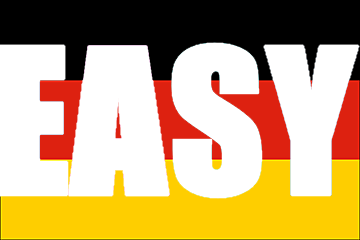| ICFCY-Code | Title | Description |

|
b122
|
Global psychosocial functions |
General mental functions, as they develop over the life span, required to understand and constructively integrate the mental functions that lead to the formation of the personal and interpersonal skills needed to establish reciprocal social interactions, in terms of both meaning and purpose. |

|
b1267
|
Trustworthiness |
Mental functions that produce a personal disposition that is dependable and principled, as contrasted to being deceitful and antisocial. |

|
d1601
|
Focusing attention to changes in the environment |
Intentionally attending to some element of the environment, such as changes in the quality, quantity or intensity of physical or social stimuli. |

|
d540
|
Dressing |
Carrying out the coordinated actions and tasks of putting on and taking off clothes and footwear in sequence and in keeping with climatic and social conditions, such as by putting on, adjusting and removing shirts, skirts, blouses, pants, undergarments, saris, kimono, tights, hats, gloves, coats, shoes, boots, sandals and slippers. |
|
|
d7
|
CHAPTER 7 INTERPERSONAL INTERACTIONS AND RELATIONSHIPS |
This chapter is about carrying out the actions and tasks required for basic and complex interactions with people (strangers, friends, relatives, family members and lovers) in a contextually and socially appropriate manner. |

|
d710
|
Basic interpersonal interactions |
Interacting with people in a contextually and socially appropriate manner, such as by showing consideration and esteem when appropriate, or responding to the feelings of others. |

|
d7100
|
Respect and warmth in relationships |
Showing and responding to concerns, sympathy, consideration and esteem in a contextually and socially appropriate manner. |

|
d7101
|
Appreciation in relationships |
Showing and responding to satisfaction and gratitude in a contextually and socially appropriate manner. |

|
d7102
|
Tolerance in relationships |
Showing and responding to understanding and acceptance of behaviour in a contextually and socially appropriate manner. |

|
d7103
|
Criticism in relationships |
Providing and responding to implicit and explicit differences of opinion or disagreement in a contextually and socially appropriate manner. |

|
d7104
|
Social cues in relationships |
Giving and reacting appropriately to signs and hints that occur in social interactions. |

|
d71040
|
Initiating social interactions |
Initiating and responding appropriately in reciprocal social exchange with others. |

|
d71041
|
Maintaining social interactions |
Regulating behaviours to sustain social exchanges. |

|
d71048
|
Social cues in relationships, other specified |
|

|
d71049
|
Social cues in relationships, unspecified |
|

|
d7105
|
Physical contact in relationships |
Making and responding to bodily contact with others, in a contextually and socially appropriate manner. |

|
d720
|
Complex interpersonal interactions |
Maintaining and managing interactions with other people, in a contextually and socially appropriate manner, such as by regulating emotions and impulses, controlling verbal and physical aggression, acting independently in social interactions, and acting in accordance with social rules and conventions. |

|
d7200
|
Forming relationships |
Beginning and maintaining interactions with others for a short or long period of time, in a contextually and socially appropriate manner, such as by introducing oneself, finding and establishing friendships and professional relationships, starting a relationship that may become permanent, romantic or intimate. |

|
d7201
|
Terminating relationships |
Bringing interactions to a close in a contextually and socially appropriate manner, such as by ending temporary relationships at the end of a visit, ending long-term relationships with friends when moving to a new town or ending relationships with work colleagues, professional colleagues and service providers, and ending romantic or intimate relationships. |

|
d7202
|
Regulating behaviours within interactions |
Regulating emotions and impulses, verbal aggression and physical aggression in interactions with others, in a contextually and socially appropriate manner. |

|
d7203
|
Interacting according to social rules |
Acting independently in social interactions and complying with social conventions governing one's role, position or other social status in interactions with others. |

|
d7204
|
Maintaining social space |
Being aware of and maintaining a distance between oneself and others that is contextually, socially and culturally appropriate. |

|
d7400
|
Relating with persons in authority |
Creating and maintaining formal relations with people in positions of power or of a higher rank or prestige relative to one's own social position, such as an employer. |

|
d7401
|
Relating with subordinates |
Creating and maintaining formal relations with people in positions of lower rank or prestige relative to one's own social position, such as an employee or servant. |

|
d7402
|
Relating with equals |
Creating and maintaining formal relations with people in the same position of authority, rank or prestige relative to one's own social position. |

|
d750
|
Informal social relationships |
Entering into relationships with others, such as casual relationships with people living in the same community or residence, or with co-workers, students, playmates or people with similar backgrounds or professions. |

|
d7508
|
Informal social relationships, other specified |
|

|
d7509
|
Informal social relationships, unspecified |
|

|
d815
|
Preschool education |
Learning at an initial level of organized instruction in the home or in the community designed primarily to introduce a child to a school-type environment and prepare the child for compulsory education, such as by acquiring skills in a day-care or similar setting in preparation for school (e.g. educational services provided in the home or in community settings designed to promote health and cognitive, motor, language and social development and readiness skills for formal education). |
|
|
d9
|
CHAPTER 9 COMMUNITY, SOCIAL AND CIVIC LIFE |
This chapter is about the actions and tasks required to engage in organized social life outside the family, in community, social and civic areas of life. |

|
d910
|
Community life |
Engaging in aspects of community social life, such as engaging in charitable organizations, service clubs or professional social organizations. |

|
d9100
|
Informal associations |
Engaging in social or community associations organized by people with common interests, such as local social clubs or ethnic groups. |

|
d9101
|
Formal associations |
Engaging in professional or other exclusive social groups, such as associations of lawyers, physicians or academics. |

|
d9102
|
Ceremonies |
Engaging in non-religious rites or social ceremonies, such as marriages, funerals or initiation ceremonies. |

|
d9205
|
Socializing |
Engaging in informal or casual gatherings with others, such as visiting friends or relatives or meeting informally in public places. |

|
d950
|
Political life and citizenship |
Engaging in the social, political and governmental life of a citizen, having legal status as a citizen and enjoying the rights, protections, privileges and duties associated with that role, such as the right to vote and run for political office, to form political associations; enjoying the rights and freedoms associated with citizenship (e.g. the rights of freedom of speech, association, religion, protection against unreasonable search and seizure, the right to counsel, to a trial and other legal rights and protection against discrimination); having legal standing as a citizen. |

|
d998
|
Community, social and civic life, other specified |
|

|
d999
|
Community, social and civic life, unspecified |
|

|
e235
|
Human-caused events |
Alterations or disturbances in the natural environment, caused by humans, that may result in the disruption of people's day-to-day lives, including events or conditions linked to conflict and wars, such as the displacement of people, destruction of social infrastructure, homes and lands, environmental disasters and land, water or air pollution (e.g. toxic spills). |

|
e330
|
People in positions of authority |
Individuals who have decision-making responsibilities for others and who have socially defined influence or power based on their social, economic, cultural or religious roles in society, such as teachers, employers, supervisors, religious leaders, substitute decision-makers, guardians or trustees. |

|
e355
|
Health professionals |
All service providers working within the context of the health system, such as doctors, nurses, physiotherapists, occupational therapists, speech therapists, audiologists, orthotist-prosthetists, medical social workers. |

|
e360
|
Other professionals |
All service providers working outside the health system, including social workers, lawyers, teachers, architects, and designers. |
|
|
e4
|
CHAPTER 4 ATTITUDES |
This chapter is about the attitudes that are the observable consequences of customs, practices, ideologies, values, norms, factual beliefs and religious beliefs. These attitudes influence individual behaviour and social life at all levels, from interpersonal relationships and community associations to political, economic and legal structures; for example, individual or societal attitudes about a person's trustworthiness and value as a human being that may motivate positive, honorific practices or negative and discriminatory practices (e.g. stigmatizing, stereotyping and marginalizing or neglect of the person).
The attitudes classified are those of people external to the person whose situation is being described. They are not those of the person themselves.
The individual attitudes are categorized according to the kinds of relationships listed in Environmental Factors Chapter 3. Values and beliefs are not coded separately from the attitudes as they are assumed to be the driving forces behind the attitudes. |

|
e410
|
Individual attitudes of immediate family members |
General or specific opinions and beliefs of immediate family members about the person or about other matters (e.g. social, political and economic issues), that influence individual behaviour and actions. |

|
e415
|
Individual attitudes of extended family members |
General or specific opinions and beliefs of extended family members about the person or about other matters (e.g. social, political and economic issues), that influence individual behaviour and actions. |

|
e420
|
Individual attitudes of friends |
General or specific opinions and beliefs of friends about the person or about other matters (e.g. social, political and economic issues), that influence individual behaviour and actions. |

|
e425
|
Individual attitudes of acquaintances, peers, colleagues, neighbours and community members |
General or specific opinions and beliefs of acquaintances, peers, colleagues, neighbours and community members about the person or about other matters (e.g. social, political and economic issues), that influence individual behaviour and actions. |

|
e430
|
Individual attitudes of people in positions of authority |
General or specific opinions and beliefs of people in positions of authority about the person or about other matters (e.g. social, political and economic issues), that influence individual behaviour and actions. |

|
e435
|
Individual attitudes of people in subordinate positions |
General or specific opinions and beliefs of people in subordinate positions about the person or about other matters (e.g. social, political and economic issues), that influence individual behaviour and actions. |

|
e440
|
Individual attitudes of personal care providers and personal assistants |
General or specific opinions and beliefs of personal care providers and personal assistants about the person or about other matters (e.g. social, political and economic issues), that influence individual behaviour and actions. |

|
e445
|
Individual attitudes of strangers |
General or specific opinions and beliefs of strangers about the person or about other matters (e.g. social, political and economic issues), that influence individual behaviour and actions. |

|
e450
|
Individual attitudes of health professionals |
General or specific opinions and beliefs of health professionals about the person or about other matters (e.g. social, political and economic issues), that influence individual behaviour and actions. |

|
e455
|
Individual attitudes of other professionals |
General or specific opinions and beliefs of health-related and other professionals about the person or about other matters (e.g. social, political and economic issues), that influence individual behaviour and actions. |

|
e460
|
Societal attitudes |
General or specific opinions and beliefs generally held by people of a culture, society, subcultural or other social group about other individuals or about other social, political and economic issues, that influence group or individual behaviour and actions. |

|
e465
|
Social norms, practices and ideologies |
Customs, practices, rules and abstract systems of values and normative beliefs (e.g. ideologies, normative world views and moral philosophies) that arise within social contexts and that affect or create societal and individual practices and behaviours, such as social norms of moral and religious behaviour or etiquette; religious doctrine and resulting norms and practices; norms governing rituals or social gatherings. |

|
e570
|
Social security services, systems and policies |
Services, systems and policies aimed at providing income support to people who, because of age, poverty, unemployment, health condition or disability, require public assistance that is funded either by general tax revenues or contributory schemes. |

|
e5700
|
Social security services |
Services and programmes aimed at providing income support to people who, because of age, poverty, unemployment, health condition or disability, require public assistance that is funded either by general tax revenues or contributory schemes, such as services for determining eligibility, delivering or distributing assistance payments for the following types of programmes: social assistance programmes (e.g. non-contributory welfare, poverty or other needs-based compensation), social insurance programmes (e.g. contributory accident or unemployment insurance), and disability and related pension schemes (e.g. income replacement), including those who provide these services. |

|
e5701
|
Social security systems |
Administrative control and monitoring mechanisms that govern the programmes and schemes that provide income support to people who, because of age, poverty, unemployment, health condition or disability, require public assistance, such as systems for the implementation of rules and regulations governing the eligibility for social assistance, welfare, unemployment insurance payments, pensions and disability benefits. |

|
e5702
|
Social security policies |
Legislation, regulations and standards that govern the programmes and schemes that provide income support to people who, because of age, poverty, unemployment, health condition or disability, require public assistance, such as legislation and regulations governing the eligibility for social assistance, welfare, unemployment insurance payments, disability and related pensions and disability benefits. |

|
e5708
|
Social security services, systems and policies, other specified |
|

|
e5709
|
Social security services, systems and policies, unspecified |
|

|
e575
|
General social support services, systems and policies |
Services, systems and policies aimed at providing support to those requiring assistance in areas such as shopping, housework, transport, child care, respite care, self-care and care of others, in order to function more fully in society. |

|
e5750
|
General social support services |
Services and programmes aimed at providing social support to people who, because of age, poverty, unemployment, health condition or disability, require public assistance in the areas of shopping, housework, transport, self-care and care of others, in order to function more fully in society. |

|
e57508
|
General social support services, other specified |
|

|
e57509
|
General social support services, unspecified |
|

|
e5751
|
General social support systems |
Administrative control and monitoring mechanisms that govern the programmes and schemes that provide social support to people who, because of age, poverty, unemployment, health condition or disability, require such support, including systems for the implementation of rules and regulations governing eligibility for social support services and the provision of these services. |

|
e5752
|
General social support policies |
Legislation, regulations and standards that govern the programme and schemes that provide social support to people who, because of age, poverty, unemployment, health condition or disability, require such support, including legislation and regulations governing eligibility for social support. |

|
e5758
|
General social support services, systems and policies, other specified |
|

|
e5759
|
General social support services, systems and policies, unspecified |
|

|
e5800
|
Health services |
Services and programmes at a local, community, regional, state or national level, aimed at delivering interventions to individuals for their physical, psychological and social well-being, such as health promotion and disease prevention services, primary care services, acute care, rehabilitation and long-term care services; services that are publicly or privately funded, delivered on a short-term, long-term, periodic or one-time basis, in a variety of service settings such as community, home-based, school and work settings, general hospitals, speciality hospitals, clinics, and residential and non-residential care facilities, including those who provide these services. |

|
e5801
|
Health systems |
Administrative control and monitoring mechanisms that govern the range of services provided to individuals for their physical, psychological and social well-being, in a variety of settings including community, home-based, school and work settings, general hospitals, speciality hospitals, clinics, and residential and non-residential care facilities, such as systems for implementing regulations and standards that determine eligibility for services, provision of devices, assistive technology or other adapted equipment, and legislation such as health acts that govern features of a health system such as accessibility, universality, portability, public funding and comprehensiveness. |

|
e5802
|
Health policies |
Legislation, regulations and standards that govern the range of services provided to individuals for their physical, psychological and social well-being, in a variety of settings including community, home-based, school and work settings, general hospitals, speciality hospitals, clinics, and residential and non-residential care facilities, such as policies and standards that determine eligibility for services, provision of devices, assistive technology or other adapted equipment, and legislation such as health acts that govern features of a health system such as accessibility, universality, portability, public funding and comprehensiveness. |






 =Select (and add) this code
=Select (and add) this code  Click on a code to expand the branch
Click on a code to expand the branch 













































































